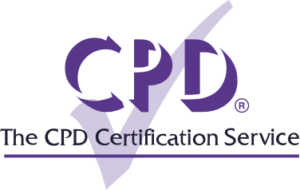In this Teachers CPD Guide
Why do Teachers need CPD?

To deliver high-quality teaching, teachers need to have appropriate knowledge of their specific subjects. They also need to understand and manage difficult situations within a diverse classroom, of which some can be challenging.
In 2020, there were 9,914,034 pupils and 548,078 full-time teachers, and the highest pupil-teacher ratio was 19.3. This emphasises the need for teachers to learn new strategies and techniques to have the confidence in dealing with ever-increasing classrooms.
Continuing Professional Development (CPD) training is vital for teachers. It can help them identify and address any potential issues and challenges with pupils and colleagues. It also enables them to have up to date knowledge on policies and legislation and can help them build confidence to deal with difficult situations. Overall, CPD helps improve their skills and motivation so they can be a better teacher.
What our customers have to say
Dan King
Mobilisation, Training & Performance Manager

Sophie Aiken
HR Manager

Harriet Lee
Retail Recruitment Manager

What CPD courses do Teachers need?
Teachers can face many different issues and challenges in the classroom and the wider educational environment. It is not just about imparting knowledge on specific subjects to pupils. There are other aspects to consider within an education setting, e.g. health and safety, safeguarding, Special Educational Needs and Disabilities (SEND) pupils, bullying, equality and diversity and even COVID-19.
Teachers also have a duty of care towards their pupils. A part of this is identifying any issues and signs of harm (including those arising from home). Teachers need to understand what could affect their pupils and others within the learning environment.
The CPD courses that teachers need should help them understand their duties and give them the confidence to handle difficult situations in their education setting.
Download our CPD trackerA guide to CPD for Teachers
Teaching methods are constantly developing, and learning approaches are changing with each generation. Therefore, teachers need to keep abreast with the latest developments and legislation to enhance their everyday teaching. CPD gives teachers the knowledge and skills to keep up with the pace of education. This will also help with their pupils’ learning.
Teachers must be competent to carry out their roles and responsibilities effectively, regardless of their teaching level. Competence means having a combination of relevant training, knowledge, skills and experience. Regular CPD training is a vital part of achieving competency in teaching and the wider education setting.
There are teaching professional bodies and member institutions that may make CPD a mandatory requirement for members. Some professional bodies may even require members to undertake a certain number of CPD hours annually. Employers in education settings may also require teachers to undertake CPD as part of their role.
If you are not already aware of the CPD training required for your teaching role and responsibilities, you should ask your employer and check current professional development standards for teachers. You can also think about where the gaps are in your knowledge and skills and which areas you could improve. For example, you may find dealing with challenging behaviour difficult and taking a relevant course may help you overcome this.
It doesn’t matter the type or size of the education setting, where you teach, or what your role entails. Our e-learning courses will help you with your CPD.
CPD courses
Many things count towards your CPD, and they should be relevant to you and your goals as a teacher. For example, you can attend seminars/lectures/webinars, read books/journals, start mentoring and undertake work-based learning. You can also complete e-learning, which can also count as part of your CPD.
Our e-learning courses are CPD certified and accredited under the CPD Certification Service. When you complete your course, you will gain an accredited qualification and CPD points (hours). The more training courses you undertake, the more knowledge and CPD points you will achieve.
We have different levels of courses for some areas, e.g. safeguarding children levels 2 and 3. If you are looking for more in-depth knowledge on a topic, then a level 3 course would probably be more suited to your needs.
To make the most out of your learning, you should adopt a structured and consistent approach to your CPD by undertaking training that meets your personal development objectives as a teacher.
CPD certificates
Once logged in, you can work through your course in a few hours (depending on the type of course), and there is no time limit for completion. You can work through it at your own pace at a location of your choice. Very rarely do students need help, but if you do, our staff are here to assist.
After completion of your course, including passing the quiz, you can download your PDF certificate immediately. Our professional-looking certificates are fully CPD regulated. They can provide evidence of training to enforcement authorities (e.g. OFSTED and local authorities), professional bodies and prospective employers.
You can log onto your account at any time and download your certificates. You can keep them on file or email them through to your manager. It is also easy to print off a hard copy of your certificate and keep it with your other qualifications and awards in your CPD portfolio. You will also receive a copy of your certificate in the post.
Logging CPD hours
Every course that is CPD accredited will have a number of points assigned to it. One CPD point is equal to one hour of active learning, which means that you will get one point for every hour you spend on a CPD activity.
The number of points you will earn on completion of the course is in the course description, along with an estimated time to complete. This will give you your CPD hours.
You can keep a log of your CPD hours for the year and make a record of whether you have met your learning objectives. It is important to maintain an accurate CPD record as part of your CPD portfolio and personal development plan.
Logging CPD hours and keeping training records will have a positive impact on your overall career in teaching. Also, knowing more about the issues that can affect your pupils inside and outside the classroom will help you become a better educator and mentor.
Keeping evidence
Your certificates and any other documentation relating to your CPD should be retained as evidence. Some professional bodies require CPD records to be kept for a period of five years, and employers may want you to keep them for longer. You will need to check any requirements for CPD documentation retention times specific to your teaching role.
There is not a prescribed format when recording your CPD. Although, you may be required to use a specific format by an employer or professional body.
Your CPD record may be audited by your employer or by an external party, such as enforcement authorities and professional bodies. This is another reason why keeping evidence of your CPD is important.
Renewing CPD certificates
It is recommended that you renew your CPD certificate every two years. However, your education provider employer may want you to complete a refresher every year. This will depend on the rules within the organisation.
Refresher training also counts towards your CPD. Therefore, you can log CPD hours for every course you undertake, including those taken as a refresher.
























